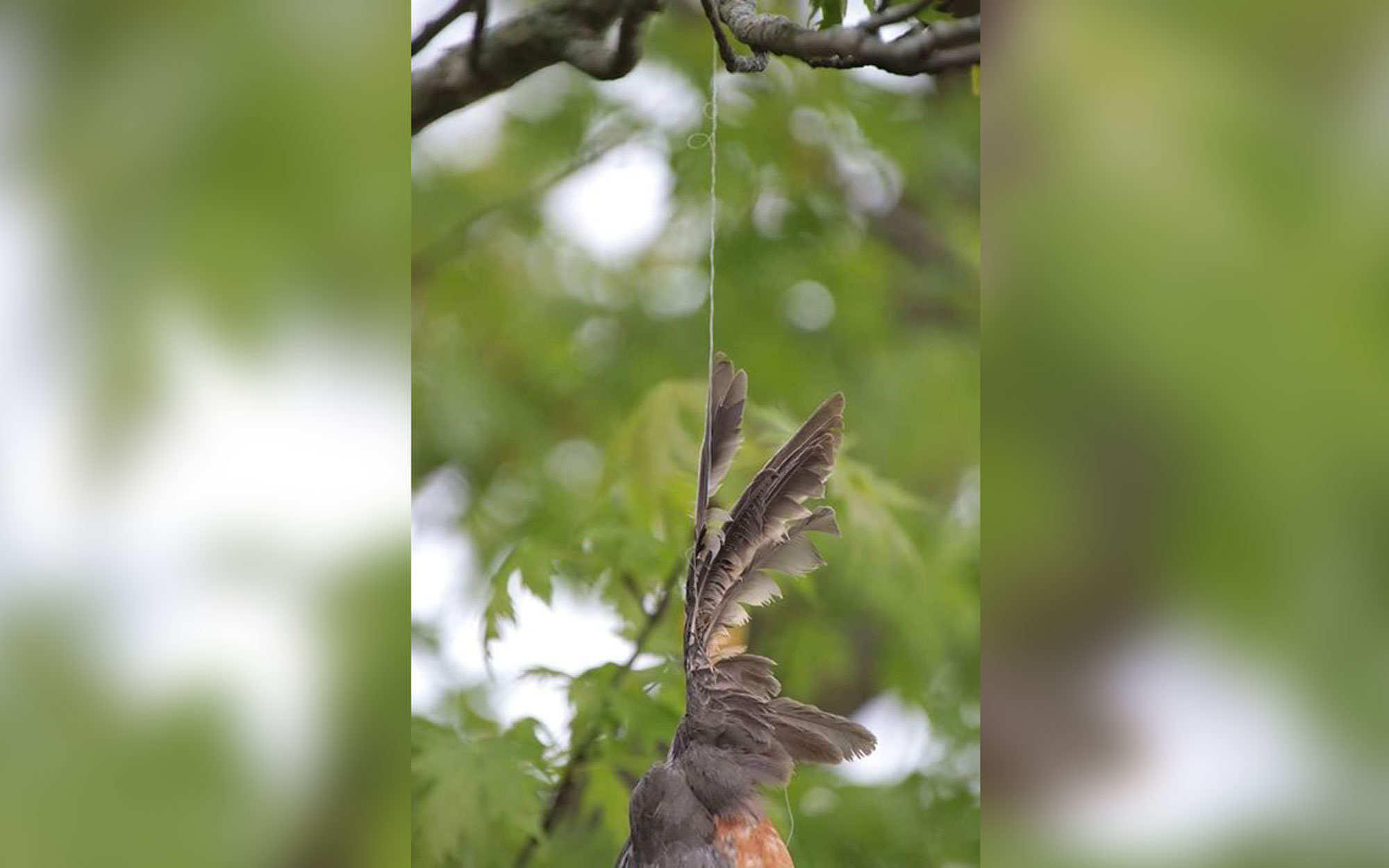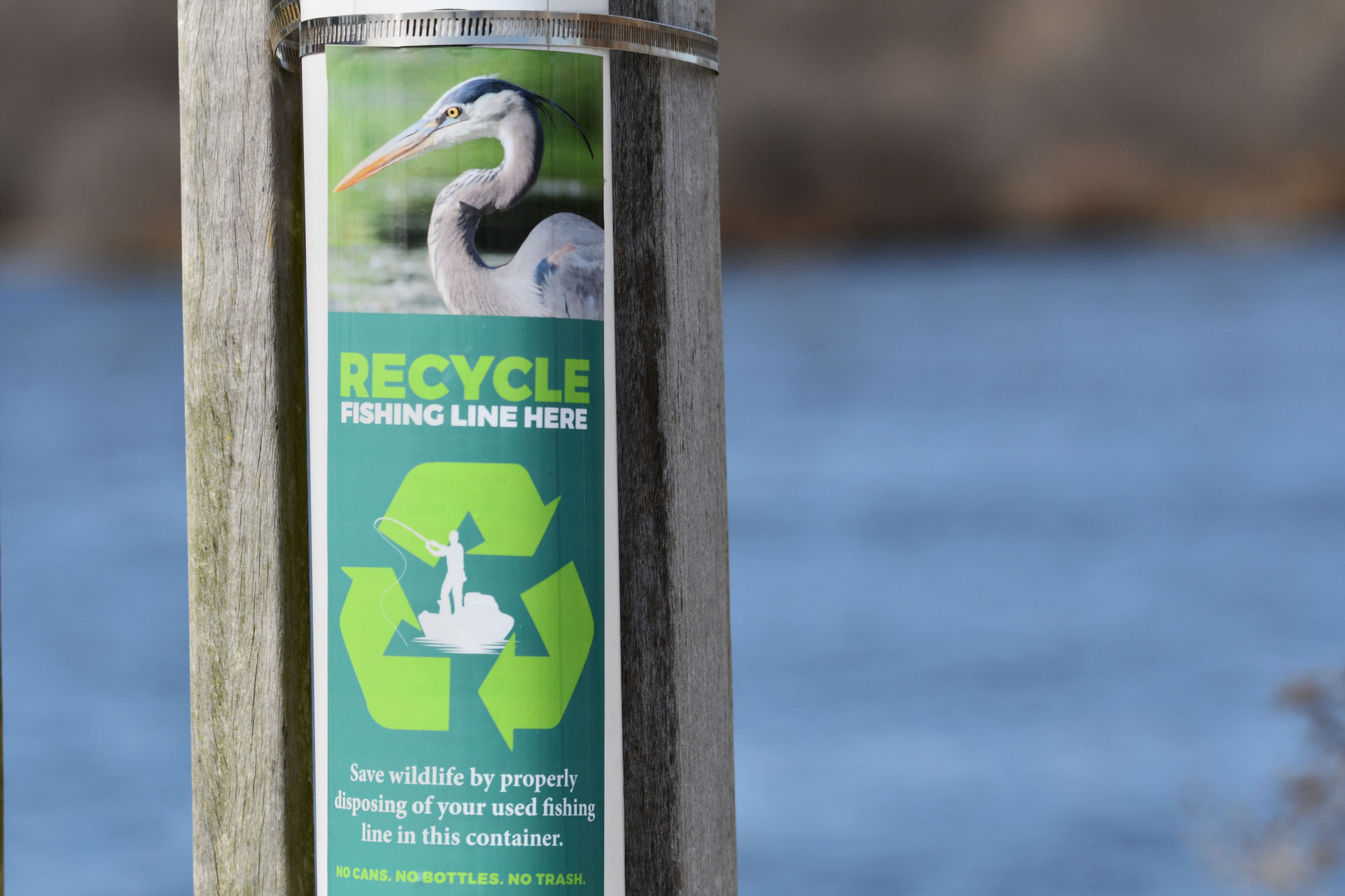Fishing line killed this robin at Monee Reservoir; it shouldn't have

Once again, we have an important request for everyone: Please properly dispose of your fishing line. Failing to do so will continue to be a death sentence for wildlife.
The proof comes to us from Monee Reservoir, where a dead robin was found on Tuesday hanging from a tree by fishing line. Its wing had become entangled in the line, then got stuck on a branch. What a horrible way to die.
Sadly, this senseless and very preventable death is something we see all too often. For example:
- In March 2018, a pelican was found tangled in fishing line at McKinley Woods - Kerry Sheridan Grove. It was rescued but later had to be euthanized because its injuries were too severe.
- Just a month later, an egret was found dead, tangled in fishing line, hanging from a tree at Lake Renwick.
- In May 2019, a robin became entangled in fishing line at Isle a la Cache Preserve and died.
- And in March of this year, a dead great blue heron was found hanging from a tree at Rock Run Rookery Rookery Preserve.
Those are only the ones we've seen first-hand because they've been close to a trail and in plain view. With more than 22,000 acres of open space in the preserves, there are undoubtedly many more birds hanging themselves because of carelessly discarded fishing line.
We routinely see — and remove — line strewn about on the ground, caught in trees, etc. If you're one of those people who gets your line stuck in a tree when casting, you need to find a better spot to cast. Or maybe just stop fishing altogether.
According to the Chicago Audubon, thousands of animals are killed each year after becoming entangled in man-made materials.
The group has tips for preventing these kinds of animal injuries and fatalities:
- Always cut fishing line into pieces less than 6 inches long.
- Dispose of it, along with hooks and tackle, in appropriate covered containers so it does not become a risk to wildlife.
- Volunteer your time to clean up fishing line debris at local ponds, lakes or beaches.
- Support the use of biodegradable fishing line that does not have an indefinite life span in the environment.

The Forest Preserve has receptacles to dispose of fishing line at all of its main fishing sites, including at Monee Reservoir. Choosing to use them is truly a matter of life and death for the animals that call our forest preserves home.
The health and safety of wildlife in the preserves is an important issue and with warmer weather approaching when more people will be flocking to the local waterways, we urge everyone to act in a responsible manner and think about how your actions impact everyone, including wildlife.
